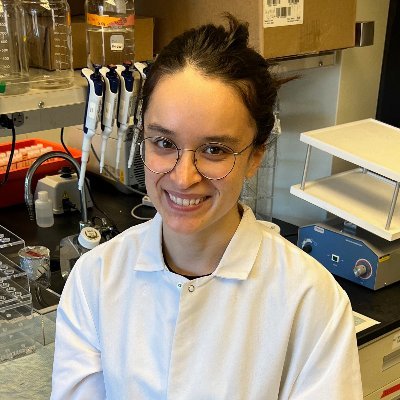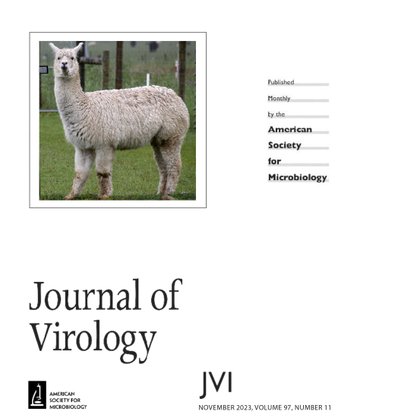
Caroline Kikawa
@CKikawa
Followers
66
Following
66
Media
5
Statuses
13
md-phd student with @jbloom_lab | viral evolution and ID | @uw_mstp @uwgenome @fredhutch
Seattle, WA
Joined September 2016
In new study led by @CKikawa, we provide near real-time data on human neutralizing antibody landscape to influenza by measuring ~26,000 titers to >100 recent viral strains. Data can inform vaccine selection & evolutionary/epidemiological modeling. https://t.co/rthJdShpwP
biorxiv.org
The hemagglutinin of human influenza virus evolves rapidly to erode neutralizing antibody immunity. Twice per year, new vaccine strains are selected with the goal of providing maximum protection...
1
11
38
In new study led by @timcyuu, we measure how mutations to H3 flu HA affect cell entry, stability & antibody escape We find pleiotropic effects of mutations on these phenotypes shape evolution: epistasis alleviates cell-entry but not stability constraints https://t.co/mZs4KdCvkv
biorxiv.org
The evolution of human influenza virus hemagglutinin (HA) involves simultaneous selection to acquire antigenic mutations that escape population immunity while preserving protein function and stabil...
1
10
39
In study led by @CKikawa & Andrea Loes, we use new assay to measure ~10,000 neutralization titers to recent influenza strains & show titers correlate w evolutionary success of viral strains Similar data could help forecast evolution for vaccine selection https://t.co/OxwiNnXUuU
biorxiv.org
Human influenza viruses rapidly acquire mutations in their hemagglutinin (HA) protein that erode neutralization by antibodies from prior exposures. Here, we use a sequencing-based assay to measure...
2
22
61
In new study led by Andrea Loes, we develop sequencing-based neutralization assay that measures replicate curves for hundreds of virus-serum pairs per 96-well plate (see image below) https://t.co/hCkjUEiRpV We apply assay to characterize response to repeat influenza vaccination
5
26
99
Thanks to awesome mentors Jesse and Leslie, collaborator @mateoinnyc, super lab mates Catiana, Jackson, @maya_contr, @LisaLevoir. Excited for the rest of grad school!
0
0
3
Overall, we found broad antibodies are harder to escape than targeted antibodies. We hope these data and further efforts to characterize Zika and dengue antigenicity aid vaccine/drug design. Here are some other highlights from our paper. If you get a chance, please check it out!
1
0
1
Many antigenic effects were conserved - concordant with a model of antibody interaction at conserved residues across divergent antigens. Other antigenic effects of mutations were only conserved w/in Zika virus strains
1
0
1
We next wondered if antigenic effects were conserved across different flaviviruses. To this end, we tested single mutations in other viruses and summarize these data as heatmaps -- antibody escape is indicated by red, antibody sensitization indicated in blue
1
0
1
We saw single mutations had large effects on narrow antibodies, but minimal effects on broad antibodies. Example below. We validated these effects in traditional neutralization assays, and saw magnitudes of effects corroborated by DMS predictions
1
0
1
We used deep mutational scanning to identify viral mutations that escape antibodies with broad and narrow specificities. Our libraries (previously described in https://t.co/pHFKpDeR6g) are made in Zika virus envelope (E) protein
1
0
1
Rare few antibodies can broadly neutralize all dengue serotypes and Zika -- high protective potential, and eliciting these antibodies by vacc would be great! But what is effect of viral single amino acid mutation, ie the most evolutionarily accessible form of antigenic variation?
1
0
1
My first, first-author research article was published yesterday in @JVirology! https://t.co/iwnqFd355p Excited to share our work measuring the effects of single flavivirus mutations on antibody neutralization, led by me w/ @jbloom_lab and @lesliegoo_lab guidance 🧵...
journals.asm.org
The wide endemic range of mosquito-vectored flaviviruses—such as Zika virus and dengue virus serotypes 1–4—places hundreds of millions of people at risk of infection every year. Despite this, there...
2
9
35




